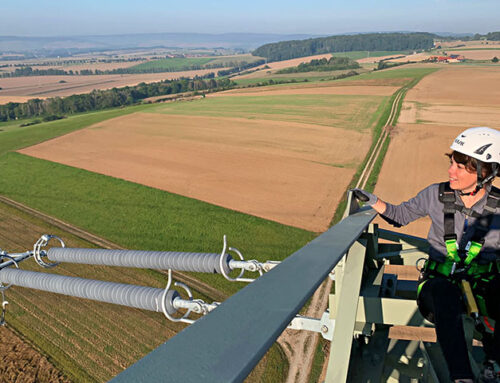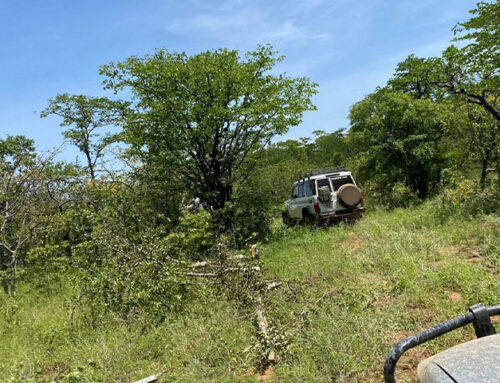COVID-19 in the Philippines
The Journey Home
More than five months after the first corona cases and following lengthy lockdowns, curfews and travel restrictions, the virus is still not under control in the Philippines. Quite the opposite. The number of new infections has been rising again in recent weeks and has now reached 3,000 to 5,000 per day. In Greater Manila and Cebu City, a stricter “Stay at Home” order has been issued again. Masks are compulsory everywhere in publicly accessible buildings and in most regions, also outdoors, while domestic flights have again been largely suspended.
In late July, I took advantage of a temporary easing of the restrictions to leave Apo Island after four and a half months in order to return to Germany. Since then I have been at home in Tübingen, and since 1 September 2020 I have been retired.
The journey home was exciting because local flights were frequently canceled at the last second, and it was not exactly clear what effort would be required to complete certain formalities in order to leave the country. So only after receiving the required stamps at the customs desk in the airport did I phone to change my flight from Manila to Frankfurt to the very same evening. That way, I did not need to leave the airport at all. Our local tax advisors helped me tremendously with this, sending me a car with a driver who delivered my suitcase, which was stored in Manila, and drove me from one terminal to the other. I was then very relieved to finally be sat in a Qatar Airlines plane on the flight to a stopover in Doha.
Looking back, my time on Apo Island seems to have gone by very quickly. On the island itself there was not a single (detected) case of corona, and in the Negros Oriental province there were only isolated cases – mostly imported from elsewhere.
Fortunately, I no longer had to work during my final weeks on Apo. But nor could I travel as planned around the country and region during my remaining vacation. Up until mid-June, I went diving almost every day and stacked up more than 100 dives within four and a half months. On two occasions, a school of dolphins swam past further out to sea. But you could only see them with binoculars.
That kept me busy during the day, while in the evening I, usually being the only guest, dined together with the restaurant’s remaining staff, sometimes also playing Uno or watching movies with them. Even streaming worked quite well at times via my mobile hotspot.

My Balcony
The other six or so expats originally on the island had departed one by one, leaving only three of us in the end. The island’s inhabitants went fishing every day. Nearly all men were out on their small boats early in the morning or even at nighttime. As a diver, I was naturally saddened to learn that octopuses, moray eels and barracudas were also caught.
In the last two weeks, the weather became stormy so I stopped diving. A hard time now lies ahead for the local population, as fishing will not be possible anymore in the stormy weather over the next few months and there are still no tourists coming to the island.
Regular deliveries of rice are made by the local authorities. Once, the mayor of the provincial capital sent a chicken weighing at least 1 kg for every family. The inhabitants thanked the mayor by making a TikTok video. At any rate, everyone had fun with it.
In small steps, I have been further pursuing the hybrid project mentioned in my last blog article. I managed to obtain a proposal for it from a company that provides ‘water kiosks’. These are small, compact desalination units that can be used to fill the standard 20 l canisters that are then collected by customers themselves or are delivered for a small surcharge. The figures instantly confirm what is intuitively obvious: The combination of solar PV and desalination produces a considerable cost advantage because all surplus PV energy can be fully utilized for desalination. The desalination acts like an extra battery. I presented the project to the local village leader and his team, who responded very positively. But unfortunately, pursuing this further from Germany will be somewhat difficult.
In June, I had to go to the mainland for the first time to extend my visa. The village leader gave me a quarantine pass so that I could do so. We also took that opportunity to go to a large supermarket. After more than three months on the island, it was an almost overwhelming feeling. Red wine. What luxury! All of a sudden, everything was available. And you realize how little you really need. On the island, you need hardly anything. After four to six weeks, your toothpaste and shampoo then slowly begin to run out. But as long as you have basic meals and your internet connection is good enough to read the NYT, there really is not much more that you need.
Back in Germany, there are a number of things that I appreciate: You can always get fresh water out of the tap, and you can even drink it without any worries. Power from the plug socket is continually available, as is a strong WiFi signal. Thanks to a very smart and relaxed approach along with top-class resources in the hospitals, there are also hardly any more COVID fatalities.
I am glad to have had the experience and the adventure. Four and a half months on Apo Island in the Philippines. An unusual end to my 19 years of working for Fichtner, and not something that every employer can offer!
September 2020

Karl Peter Schleich
Former Director Business Development East Asia at Fichtner





